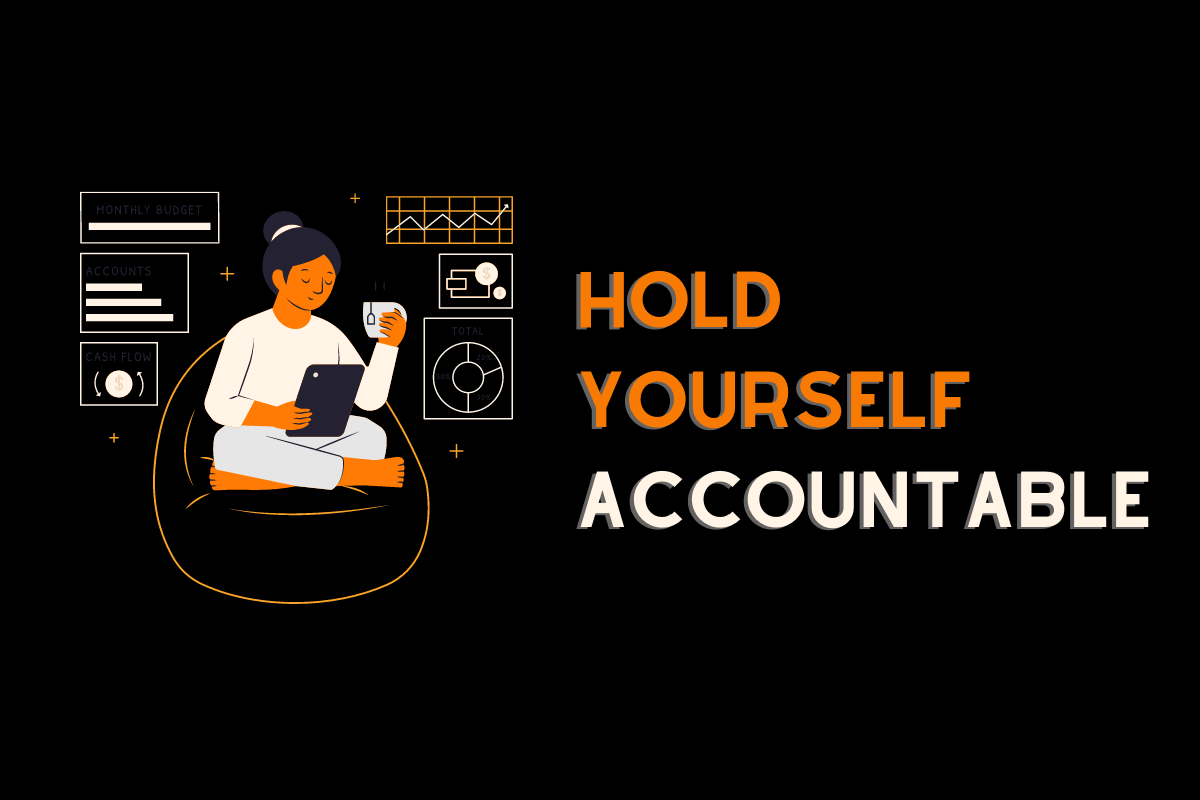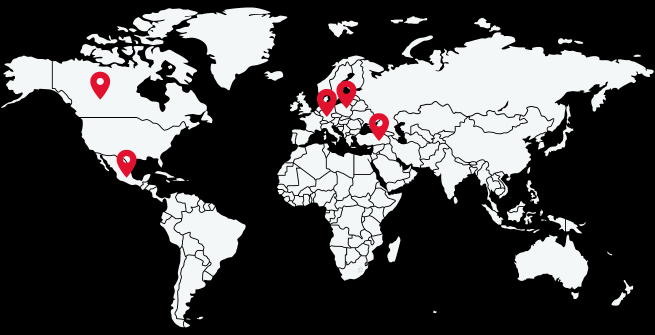Personal accountability means taking ownership and responsibility for one’s actions, choices, and outcomes. It is a significant concept that empowers us as individuals, because it encourages continuous learning, develops resilience and integrity, fosters positive relationships and aids in goal achievement all of which are factors that ultimately contribute to personal fulfillment. Simply put, it means truly knowing oneself and our capabilities and limitations and metaphorically knowing the cards we are dealt in life and how we choose to play them.
In the context of self-development, personal accountability allows us to adopt a proactive mindset that focuses on self-reflection, self-awareness, and self-improvement. It means acknowledging your strengths, weaknesses, and areas for growth, and actively working on enhancing your skills, knowledge, and personal qualities.
What is personal accountability?
Here are a few key aspects of how personal accountability accounts for achieving fulfillment and success:
Self-awareness
It begins with being honest with yourself and having a clear understanding of your values, beliefs, motivations, and goals. It involves recognizing your strengths and weaknesses and identifying areas where you need to improve.
Goal-setting
Personal accountability entails setting specific, measurable, achievable, relevant, and time-bound (SMART) goals for yourself. These goals provide a sense of direction and purpose, and they serve as benchmarks to measure your progress.
Taking action
Being personally accountable means taking proactive steps to work toward your goals and aspirations. It involves developing action plans, breaking tasks into manageable steps, and consistently taking action to move forward.
Ownership of outcomes
Personal accountability requires accepting responsibility for the results of your actions. If things don’t go as planned, rather than blaming external circumstances or other people, you focus on learning from the experience and adjusting your approach accordingly.
Adaptability and resilience
Personal accountability involves being adaptable and resilient in the face of challenges and setbacks. It means viewing obstacles as opportunities for growth and finding ways to overcome them rather than giving up or making excuses.
Related post: Why having an accountability buddy is priceless
Continuous learning
Engaging in self-development requires a commitment to lifelong learning. It involves seeking new knowledge, acquiring new skills, and staying open to feedback and constructive criticism.
Self-reflection and self-correction
Personal accountability includes regularly reflecting on your actions, behaviors, and choices. It involves identifying areas where you can improve, holding yourself to high standards, and making necessary adjustments to align your actions with your goals and values.
The bottomline is: personal accountability is the starting point for taking control of your life and actively working towards becoming the best version of yourself. It enables you to make conscious choices, learn from your experiences, and create meaningful and fulfilling outcomes in various aspects of your life. And it begins the moment we realize that our health, happiness and success is in our own hands, no matter where our individual starting point is for self-growth.
Of course there are uncontrollable situations in this planet and even galaxy of ours that we can be faced with, but in most cases, it is how we respond to such challenges that determines the outcome of our own lives. The good news is that by following the main tenets of personal accountability, we can work towards creating the existence that we choose for ourselves.
It’s natural for us to tend to blame our current situation on external factors and influences, especially if we are unsatisfied with our lives. And it’s so easy to place blame elsewhere, versus taking the time and making the effort to understand how we could have and still can rise to the challenges we face.
For those that struggle with trauma, we can rehash what happened to us and gain clarity on why those events may have led to the choices that were made, however it is through self-accountability and not depending on external factors or the actions of others, that will allow us to truly make headway in our personal growth. The understanding that taking accountability for our own responses and choices is where personal development begins is what will be the key to unlocking the positive changes we seek for ourselves.
How self-accountability differs from external accountability
While both self-accountability and external accountability serve as a gateway to self-improvement, by definition they differ significantly. Self-accountability, as the name suggests, originates from within an individual. It is an internal commitment to take responsibility for one’s actions, choices, and outcomes and relies on personal values, self-reflection, and a sense of personal ownership.
External accountability mechanisms on the other hand can be defined as receiving positive peer pressure, feedback and support from others. They are not mutually exclusive, and can often complement each other. External accountability can reinforce self-accountability and helps individuals stay on track towards achieving goals.
Personal accountability examples
To gain a greater understanding of personal accountability in play, examples of how to hold yourself accountable can include adopting healthy habits, such as maintaining a balanced diet, exercising regularly, getting enough sleep, and managing stress levels.
Personal accountability in education
In education, it means taking responsibility for your own learning and academic success, such as pursuing opportunities, showing up and participating. In the professional realm, personal accountability means fulfilling job responsibilities, meeting deadlines, taking initiative and ownership of our performance.
Personal accountability in relationships
In relationships, self accountability entails taking responsibility for your actions, behaviors, and communication. It involves treating others with respect, actively listening, taking ownership of mistakes, and working towards resolving conflicts in a constructive manner. Personal accountability also means being reliable, keeping commitments, and demonstrating integrity in your interactions with others.
Personal accountability in finances
Personal accountability in finances involves being responsible for managing your money effectively. It includes creating and sticking to a budget, paying bills on time, saving for the future, and avoiding excessive debt. It also means taking ownership of your financial decisions and seeking knowledge to make informed choices.
Personal accountability in goal setting
In pursuing goals and aspirations, examples of personal accountability would be setting clear objectives, creating action plans, and taking consistent steps towards achieving them. It also means holding oneself accountable for progress, staying motivated, and acknowledging setbacks and learning from them to continue moving forward.
These examples illustrate how personal accountability encompasses various aspects of life, where individuals take ownership and responsibility for their thoughts, actions, and outcomes.
It is plain to see that by practicing personal accountability, individuals can foster personal growth, maintain healthy relationships, and achieve their goals more effectively. This is why having this term, which is in essence simply self-ownership and embracing who we are and want to be, offers a roadmap towards creating sustainable and affirmative changes to be able to live our best life.


